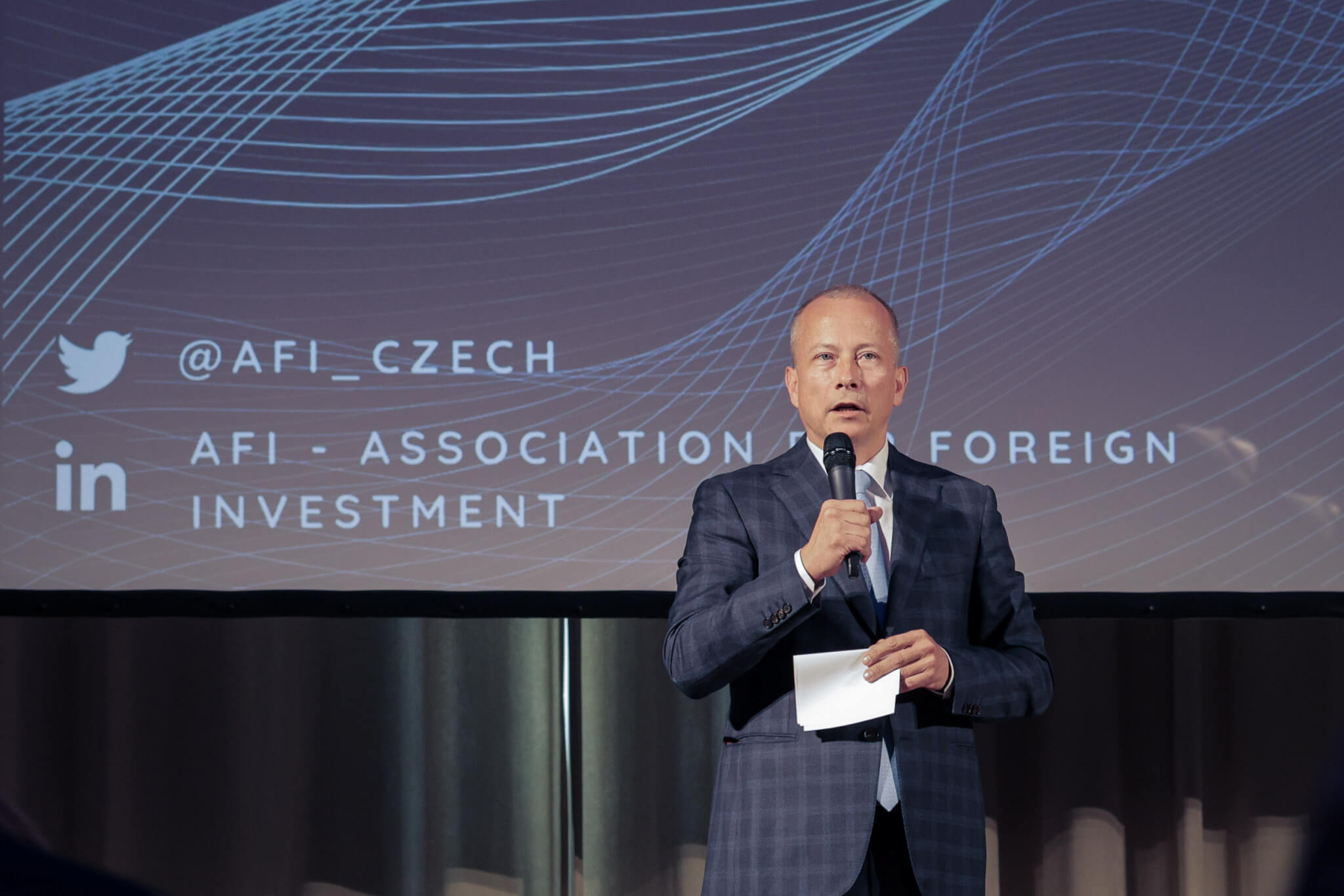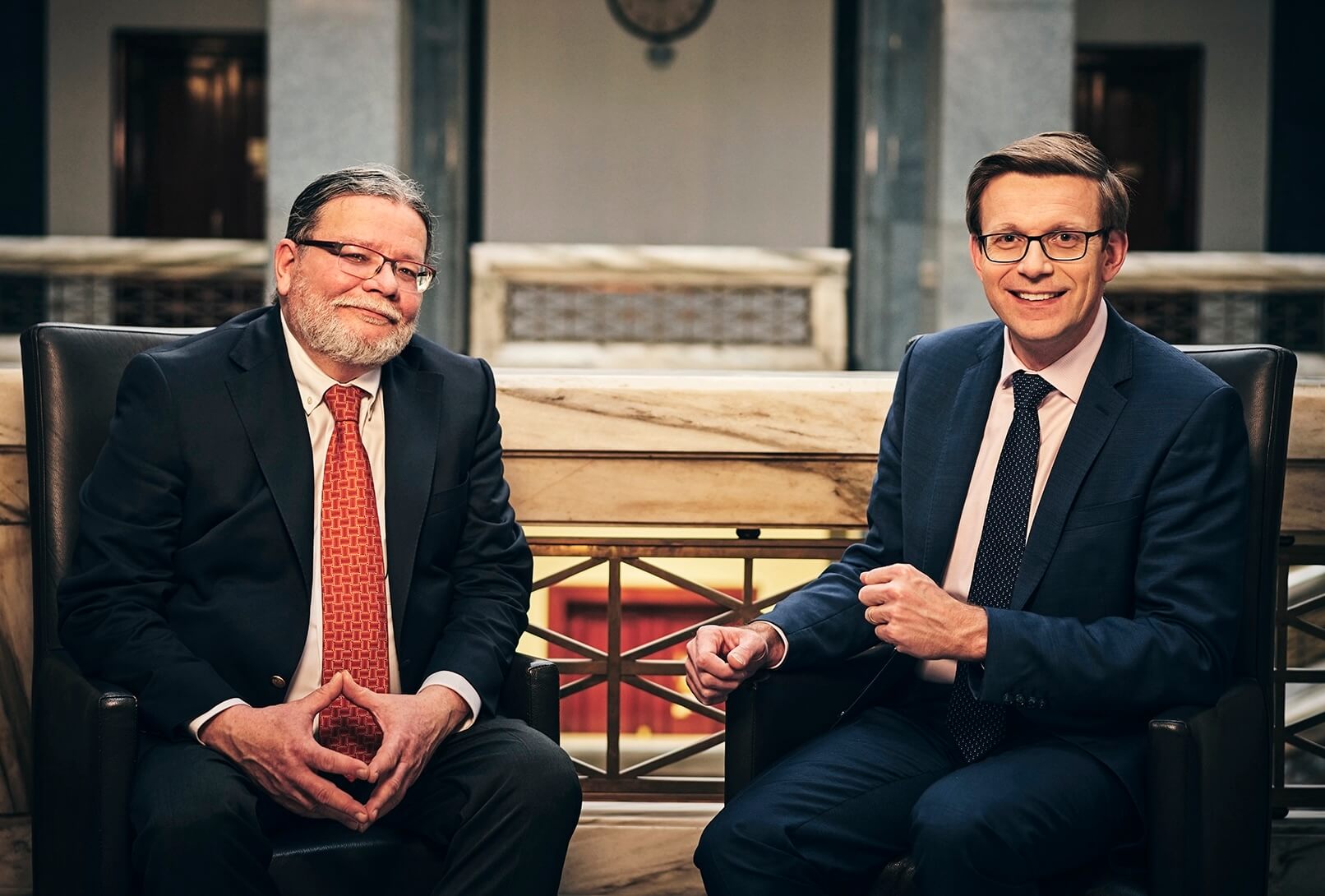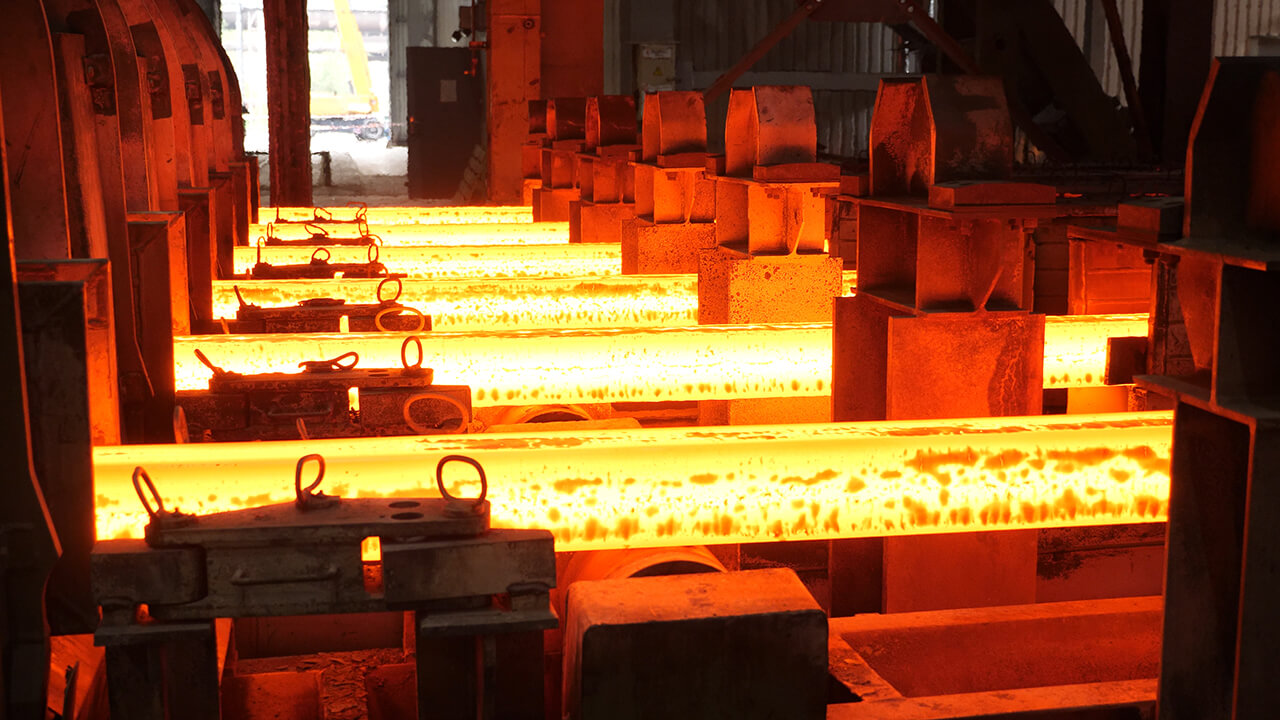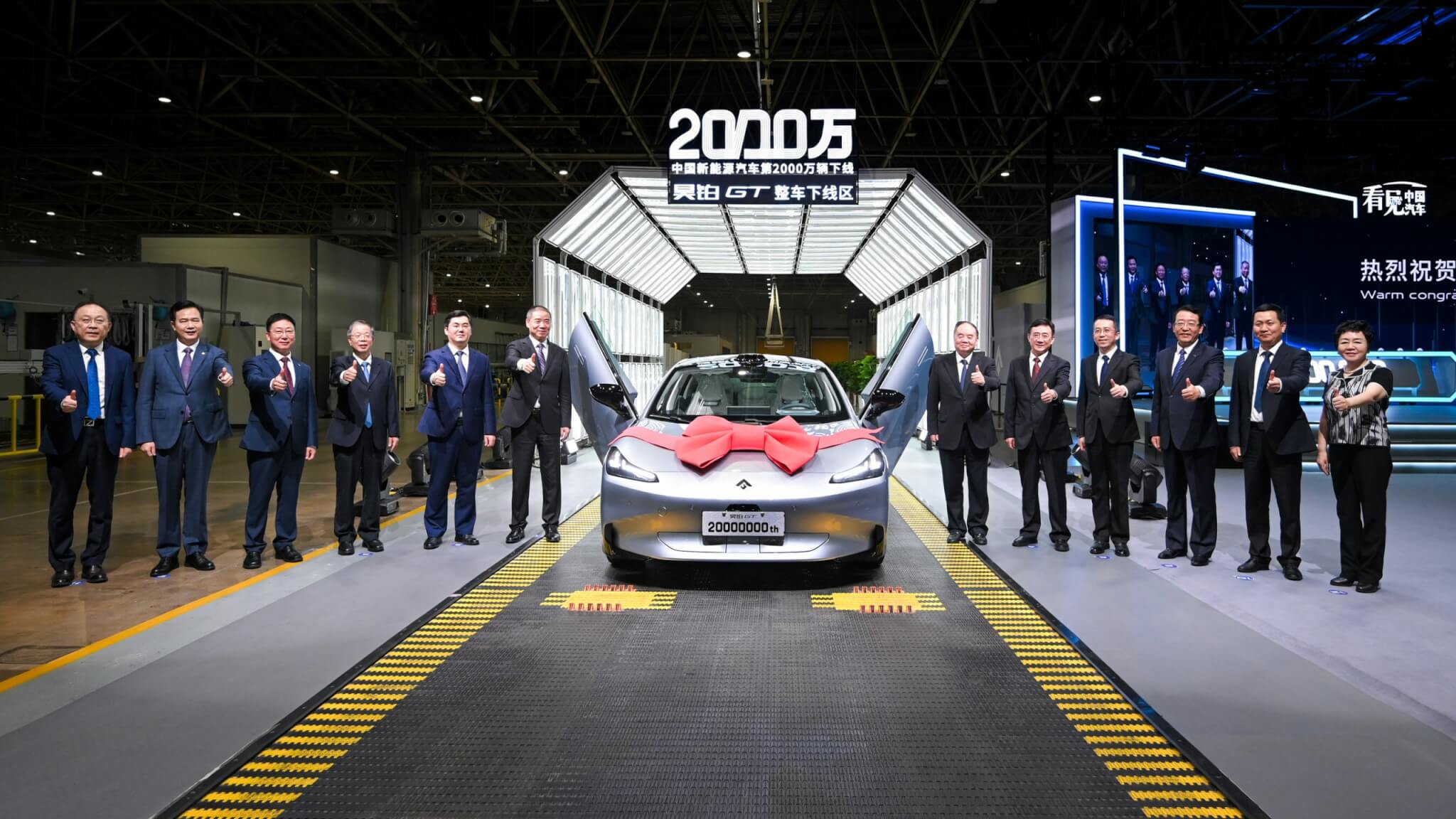According to Kamil Blažek, chairman of the Association for Foreign Investment (AFI), the green transformation will lead to one of the biggest redistributions of wealth in post-war Europe and companies that do not use it as an opportunity will at least become poorer. “It is quite possible that glassworks and porcelain factories will go bankrupt,” says the head of the AFI, adding that it will depend on whether the government and the EU go down the route of selective or across-the-board support for large companies. By the end of the year, a decision is expected to be made on where Volkswagen will build one of its planned large-scale battery factories for electric vehicles, with the Czech Republic being one of the countries that would be very interested. The military airport in Líně near Plzeň is under consideration. How important is that for us?
Very important. It would be the first significant signal that we are serious about electromobility in the Czech Republic. The trend towards electromobility is irreversible in Europe and globally, and if we want to have a car industry here in ten years’ time, it must be electromobile. We have done very little in this direction so far, and we have not supported electromobility in either the production or the consumer sector. We would need to bring in some production of the electromobility chain. And a battery factory would be a good start.
Are the relevant authorities already aware of this? In your opinion, is the government now doing its best to attract investment from VW?
I would say that the public sector has finally woken up now. Is it doing its best? It should. It is calculated that even if the investor gets a big incentive, it makes sense for the Czech economy.
As for the zone in Líně near Plzeň, where the factory is to be built, I know that there are still a number of problems. Unfortunately, there is no other zone of the size that an investor needs for this purpose in the Czech Republic.
Is it only true of the large industrial zones that they are not here, or also of the smaller ones? I guess we cannot expect any large automotive investment.
From the OEMs’ point of view, probably not. And frankly, why would any of them even come here? There’s no big industrial zone here anymore, and there’s no workforce. But as I said before, suppliers from the EV industry could come here, we should focus on them now, there is room for them.

Kamil Blažek is a lawyer and a partner at the international law firm Kinstellar in Prague. He focuses mainly on investments and strategic consulting. He specializes in contract negotiations, acquisitions, energy and infrastructure and foreign investments. He has been the chairman of the Foreign Investment Association since 2010 | Photo: Kinstellar
Will the amendment to the Investment Incentives Act, which is now in the approval phase, help?
There are actually two amendments. Simply put, the amendment to the law states that incentives will no longer be approved by the government for each project. The more interesting amendment is the amendment to the regulation to this amendment, which deals with the conditions under which a project can receive an incentive. It is here that the Foreign Investment Association has proposed some changes that relate to the criteria for granting incentives.
Unlike the Ministry of Industry, we believe that the requirement for higher added value should no longer be tightened. Thanks to the introduction of the need to meet this criterion in the past, it has not happened at all recently that projects with low added value apply for investment incentives. The tightening is therefore not only unnecessary but also counterproductive.
We also find the Ministry’s newly requested condition that only investments in regions with at least 7.5% unemployment need not meet the high added value indicator too strict. If the criterion were to remain as it is, the only region where an investor could receive an incentive would today be Karviná. Unemployment will rise, but the criterion is applied retrospectively – so next year, high unemployment would not yet be reflected in this criterion. But the Czech Republic needs to be able to respond proactively to rising unemployment and encourage new investment and employers without delay.
In addition, we have proposed that a wider range of projects could be supported than the regulation specifies. In addition to the pharmaceutical, electrical and aerospace industries, there are a number of other high-tech and, in particular, medium-tech industries that are worth specifically supporting, so that we do not miss the train in certain sectors, such as electro-mobility or the manufacture of military vehicles.
There were some other adjustments that we recommend. If most of our comments are incorporated and the law is passed in this way, it will certainly be a step in the right direction. However, we cannot expect these standards to take effect before 1 July 2023.
At its annual conference in September, the Association for Foreign Investment presented the results of a survey of companies operating in industry and services in the Czech Republic. Do respondents consider investment incentives an important motivation?
When asked to what extent investment incentives contribute to the overall development of the Czech economy, 68 percent of respondents answered yes, and we were pleased to see this.
In addition, 80 percent of companies answered that they themselves are planning further investments in the Czech Republic. This is particularly positive because the survey was conducted in August, a time when most of them were already affected by the energy problems. To be precise, 92 per cent of businesses were affected by the increase in input prices, including energy, according to the survey.
And what was also pleasing is that 35 percent of the companies surveyed said they were considering participating in Ukraine’s recovery. That the war in Ukraine has affected most of them was perhaps not surprising.
In the context of high energy prices in the Czech Republic, there were concerns that some production might move away from the country to other places where it is cheaper. In your opinion, is there a risk of this happening?
Yes, for many of them the choice will be that they will either move somewhere else or go out of business. The problem is that many companies today have the demand but are unable to make an offer because they don’t know how to price it, they don’t know how much energy will cost. We encountered this recently during discussions in the Moravian-Silesian Region. If a company is unable to make an offer, customers will look elsewhere, they will go to America or China, for example, and they will never come back.
“We need to figure out which industries we want to keep here and support those.”
So it is better for some manufacturing companies to move where they have some certainty about how the business environment will evolve.
But that is certainly not the case for companies such as Volkswagen.
Why not? It could easily afford to do so, even if the move took several years. When the war in Ukraine is over, there will certainly be cheaper energy and labour. This is just an example.
So what should we do? Cap the price of energy for companies? Or support them in some other way?
There will be some relocation of companies either way. What we should do is to identify sectors or industries in the Czech Republic that we do not want to move – and support them. I don’t think we can support all companies from the state budget in the long term, so we have to make an unpopular decision and say which sectors we must have here and which we will leave “floating without a lifebuoy”.
Support companies selectively? Illegal support, I don’t think that would work.
Yes, it is selective, but it can be done, it just takes political courage. We need to look for a solution that is in line with EU rules. For example, you can take temporary or permanent ownership of a business you want to save. Or you can temporarily rent the business from the owner.
There are ways, you just have to know what you want. The problem is that nobody here knows what we actually need.
So would you propose to support a select few larger companies in a similar way and leave the rest to their fate?
It’s quite likely that the glassworks and porcelain factories will go bankrupt without help. Are they important to the Czech Republic? Yes – but they are not vital. More important, for example, is steel for construction, energy, infrastructure and military production.
When weaker companies start to fail, unemployment will rise, which is to some extent positive for the economy.
A small but related digression: Do you think that the German €200 billion package could end up being intended for just such selective support?
That would be a crystal ball guess, and a German crystal ball at that. I fear that Germany might also go down the route of long-term across-the-board support, which the Czech budget does not want and cannot bear.
Let us return to your survey. How do companies see the labour situation in the Czech Republic? Are they more likely to recruit or lay off?
In August, 66 per cent of companies said they were going to hire, four per cent said they were going to lay off. Today it will certainly be different, but it was still positive news. Lots of businesses are short of skilled workers and the survey found that a majority of them, 74 per cent, would like to abolish quotas on hiring workers from abroad. The shortage of skilled labour is also behind the responses to the question of whether companies would like to introduce compulsory apprenticeships from the first year of secondary school or apprenticeship, amounting to at least 30 per cent of the time taught. This was supported by more than 80 percent of respondents. Dual training works similarly in Germany.
Has the perception of the Green Deal improved in companies? I know you asked about this a year ago and the results were not encouraging.
Here – for me, unfortunately – there is still a lot of fragmentation. Equal parts of businesses see the Green Deal as more or definitely an opportunity and a risk: 43 per cent and 47 per cent respectively.
Some businesses believe that the Green Deal is a perverse proposal to destroy the economy. They think it is something that is still being planned, but it is not. It is something that is already real and in motion and something that businesses should be prepared for. And the survey shows us that many have not yet gotten around to figuring out what it will mean for them. This is a totally unacceptable situation and the warning is that there is no change, the survey results are virtually the same as a year ago.
In my opinion, the Green Deal and the consequences of the decarbonisation of Europe will lead to one of the greatest redistributions of wealth in post-war Europe. Production processes, products and, with it, the whole economy will change dramatically, many companies will become poorer and many will become richer. It will be those who do not find opportunity who will become poorer.
Why do you think that is? Are the issues around the Green Deal being miscommunicated? Has no one explained it to the companies?
It’s not explained at all. And I see that as a big mistake by the government, partly this government, but more so by the last government. Nobody is showing positive examples and saying ‘look for the opportunity’, ‘let’s use the Green Deal to improve the Czech economy’. The only thing that is being said is ‘let us draw down funds for this’.
“Some companies think the Green Deal is just being planned, but it’s already in motion.”
Some members of the last government even said they were against the Green Deal, but in the end they agreed to everything. They did not even propose any changes, because they did not really know what they could propose. The civil service did not have impact analyses of the proposed European regulations. And if we do not know what it will mean for the Czech economy, we cannot push for specific changes at EU level, and therefore we will achieve nothing.
Has the perception of ESG shifted in any way?
Unfortunately not much. 40% of the companies surveyed said that they had no ESG strategy and were not preparing one. The same percentage do not have one but are preparing one, and only 20 percent have one. Here, too, many companies think it is some kind of proposal that will not be implemented in the end. In fact, it is a very slight exaggeration to say that in three or four years’ time, no bank in the EU will lend to a company that does not have an ESG strategy, that is to say, does not show a trend of continuous improvement in environmental, social and corporate governance performance.
The Association for Foreign Investment – AFI conducted a survey among companies operating in industry and services in the Czech Republic for the second time this year. The aim was to map opinions and provide suggestions for changes that will make life easier for entrepreneurs, increase their economic activity and thus benefit the whole economy. In order to track developments, most of the questions this year were the same as last year, with the addition of questions reflecting the current political and economic situation. 264 companies responded to the survey, of which companies from the automotive sector accounted for 15.5%, 16.7% from the engineering sector, 7.2% from the IT sector and 6.4% from the electrical sector.
Contact
Next articles and interviews
Next articles and interviews
+ Show









